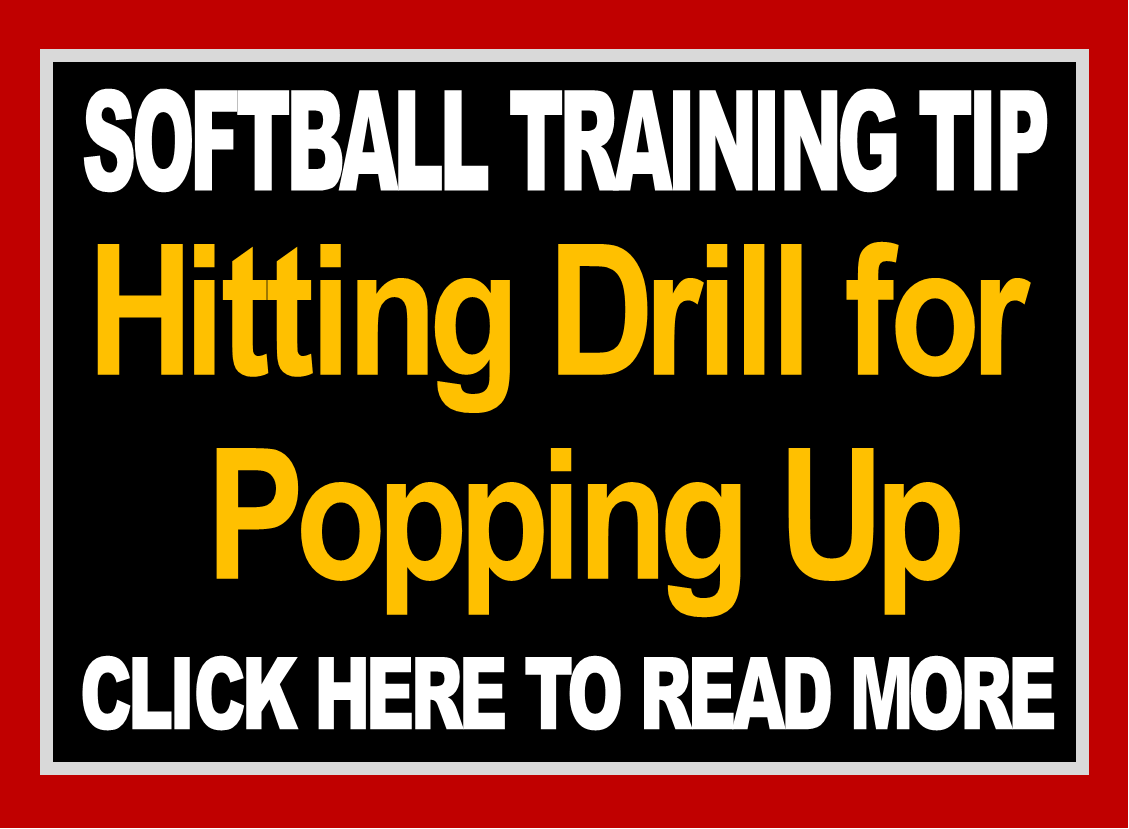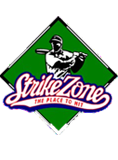
19 Sep Hitting Drill for Popping Up
Lots of hitters struggle with popping up.
This is particularly true of young hitters but find out how the problem is pretty easily fixed with a drill called the Back T Drill.
Before we get into the drill itself let’s cover a few keys about hitting that can lead to popups:
- Where the Ball is Hit – If a batter hits the Back of the ball then the ball will go forward and be a line drive. If the batter hits the Top of the ball then the ball will go down and be a groundball. And if the batter hits the bottom of the ball then the ball will go Up and be a Popup. Eliminating popups starts with the player understanding that she’s hitting the Bottom of the ball instead of the back.

- Hands to the Ball – Hitting can be confusing for players because it’s the only softball skill you do with both hands at the same time. The hands are really important in hitting because they hold the MOST important thing that a batter needs to hit – and that’s the bat! Once the batter decides to swing at a pitch, her hands need to move in only one direction – and that is Forward! Too many hitters take their hands and move them either Backwards toward the catcher, or Out toward homeplate. The 3 pictures above show these 3 different hand paths; the correct hand path on the left going directly forward to the ball, an incorrect hand path in the middle going out toward homeplate and an incorrect hand path on the right showing the hands going back toward the catcher.

- Hands Out or Back – When hitters move their hands either Back toward the catcher or else Out toward home plate they stand a huge chance of either missing the ball completely or else popping up. The reason for this is that neither movement – back or out – is not toward the ball and yet the ball is moving toward the hitter. As a result, the hitter will be late to contact increasing her chances of getting under the ball or missing it all together. Because both of these movements cause the hitter to be late to contact, the player will end up pulling the bat through the zone causing the barrel to drop too low. The picture to the right shows a batter with two different hand paths; the solid arrow shows the correct path that a batter’s hands should take – directly toward the ball. The dotted arrow shows the batter taking her hands down first (toward homeplate) causing her to then come up and contact the bottom of the ball.
There’s something that coaches tell hitters when they pop up that I’ve got to mention. All the time I hear hitters tell me when they’re popping up their coaches tell them that they’re dropping their back shoulder. And I hear coaches ask me “how do I keep my kids from dropping their back shoulders?” This isn’t the reason your players are popping up. In previous articles I went into detail on the concepts of Not Dropping Your Back Shoulder and Swinging Level. But let’s just summarize by saying that all hitters drop their back shoulder and nobody swings level. These are not the reason your hitters are popping up so as coaches, we need to make sure we are learning what really happens during skills instead of things we’ve been told that happen.
Fortunately I discovered a fairly simple drill to help hitters solve this problem and to teach players to take their hands forward, directly toward the ball. I call this drill the Back T Drill because of where I place the batting T – back behind the hitter.
Equipment – for this drill you’ll need a hitter with a bat and her helmet on, a batting T of any type, a cone or plate to act as the contact point, a protective screen (if you’re using real softballs), and some softballs (these can be softie balls).

Setup – The batter will get into her stance with the cone or base or plate positioned near her front foot where her contact point will be for a ball down the middle (the X in the picture to the right). Place the Batting T behind the cone/base/plate so that it’s even with the hitter’s back foot and hands (the dotted circle in picture to the right).
Drill – The coach should gently toss a ball to the hitter who will work on taking her hands directly toward the ball and hitting the ball without her bat hitting the T. By placing the T behind the plate it forces the batter to concentrate on making her hands move forward toward the ball instead of down or back. The T also serves as immediate feedback since the batter will hit the T instead of the ball if she moves her hands wrong.



